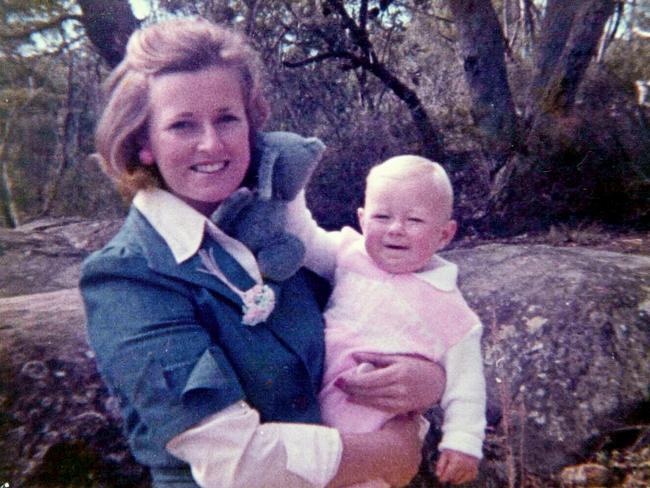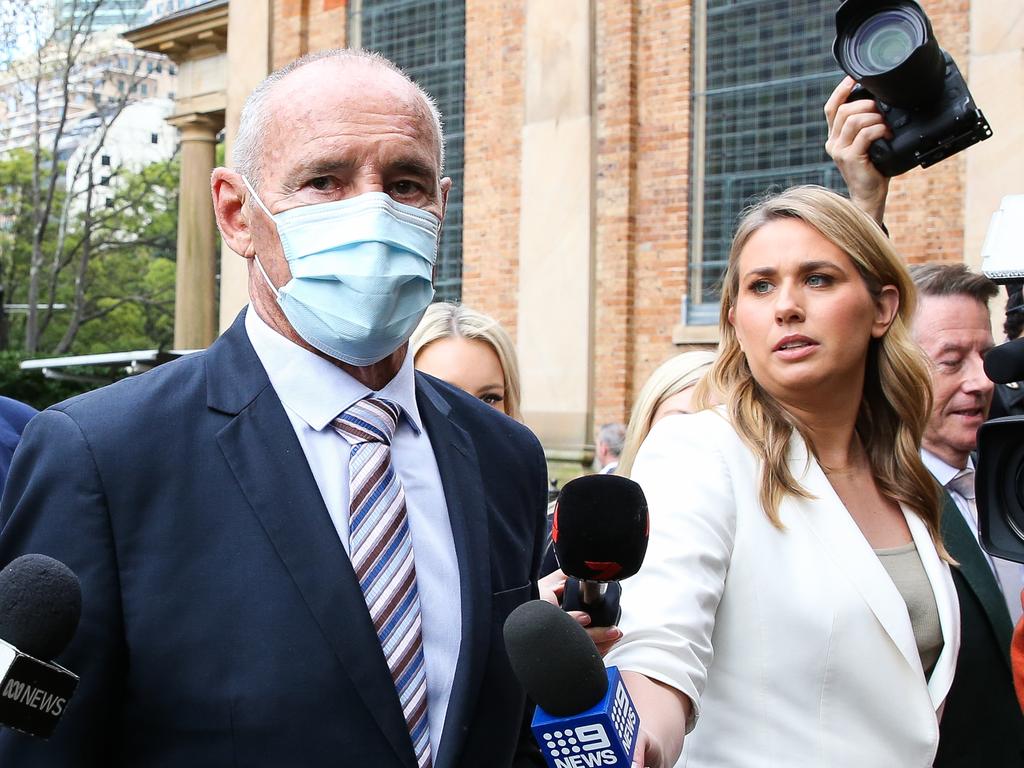Guilty verdict is a powerful endorsement of journalism
For a serious newspaper committed to the transparency of the justice system and to justice, podcasts are an important, user-friendly addition to print and online reporting. They help the media hold the justice system to account. Backed by The Australian and its owner, News Corp, The Teacher’s Pet was created. After being posted on The Australian’s website in May 2018, it unfolded across 17 episodes. It touched a lot of nerves and a lot of hearts, and was downloaded more than 70 million times worldwide.
Tuesday’s verdict gives succour and a sense of closure to Lyn Dawson’s family and friends. But it paints a diabolic picture of the police investigation conducted at the time of her disappearance. It is also a powerful affirmation of the duty of good journalism to not be cowed by the collegiate demands of powerful institutions that purport to serve the public interest. During Chris Dawson’s trial Thomas was asked in court if he had deliberately sought to undermine public confidence in the justice system. His answer was clear: “My job is not to uphold confidence in these institutions; it’s to question whether something’s gone wrong.” In this case it had gone very, very wrong.
The podcast set out the tragic facts: Lyn Dawson disappeared from the family’s Bayview home on Sydney’s northern beaches in January 1982, leaving everyone and everything behind. She never contacted her family again. In court on Tuesday they were decked out in pink, a colour she loved, to honour her memory. Chris Dawson, her husband, was a high school physical education teacher and Newtown Jets rugby league player. He claimed he had dropped her at a bus stop to go shopping and that she had phoned later to say she was leaving.

Dawson had been having a relationship with a school student, known in court as JC. The young woman had been the family’s babysitter. Within days of Lyn Dawson’s disappearance JC was picked up by Chris Dawson and moved into the family home.
Six weeks after Lyn was last seen, Dawson finally reported her disappearance to police. Eighteen months later he divorced her. After another six months, in 1984, he wed JC. The couple had one child together, separated in 1990 and later divorced. Almost eight years after Lyn’s disappearance, police finally began serious investigations. A decade later they excavated parts of the Bayview property. Another search of the property was made in 2018 but no body was located. The case was the subject of two coronial inquiries, in 2001 and 2003. Both inquiries recommended charges. But on each occasion the NSW DPP declined to lay charges, citing a lack of evidence. As Thomas acknowledged in the podcast: “It’s hard to run a prosecution for murder when you can’t point to human remains.” In 2010, a $100,000 reward was offered for information to solve the case, and it was doubled in 2014. The following year the NSW police unsolved homicide squad began reinvestigating.
After most of The Teacher’s Pet podcast had been released, Dawson was arrested in December 2018 and charged with his former wife’s murder. At that stage The Australian argued that the evidence uncovered by police, the coronial inquests and Thomas needed to be tested in court “in a sober fashion”. Dawson, the paper said, must receive a fair trial. Justice needed to be served. It has been, finally.
Dawson did not give evidence to the coronial inquiries or at his murder trial. In a wholly circumstantial case, Justice Harrison found beyond reasonable doubt that Dawson had killed his wife in a premeditated crime of passion to avoid losing his relationship with JC, with whom he had an obsessive infatuation. At the end of a marathon judgment read to the court and broadcast live online, Justice Harrison said his guilty verdict had been fortified by the lies told by Dawson at the time of his wife’s disappearance. Lies about his relationship with the young babysitter, JC, whom he later married. Lies about the state of his relationship with his wife. And lies to police that were calculated to deflect attention away from him and were explicable only by a guilty conscience.
As well as throwing fresh light on the case, bringing it to public attention and questioning whether justice had been done, getting the matter to trial was the podcast’s most significant achievement. For their work, Thomas and podcast producer Slade Gibson won a Gold Walkley Award.
The podcast also touched many lives in different ways. Thomas has received hundreds of emails from women who were deeply affected by Lyn’s story and inspired by it to deal with their own difficult domestic circumstances, such as facing domestic violence. As a result, some podcast followers escaped dangerous, abusive home lives to begin afresh. During Dawson’s trial, several witnesses testified that they saw or were told of incidents in which Dawson had been aggressive or violent towards Lyn before her disappearance. Dawson’s barrister, Pauline David, disputed those claims and argued the witnesses were mistaken or embellishing their evidence. If justice delayed is justice denied, then it was denied for stakeholders in this saga for far too long. Lessons should be learned from Tuesday’s judgment, especially from the fact a reporter such as Thomas was able to achieve what the justice system could not across many years. It remains to be seen if Dawson will appeal the verdict. If so, it would open yet another chapter in a saga that should have been resolved decades ago. If not for Thomas and The Teacher’s Pet, it would not be resolved even now. And it is reasonable to believe it would never have been resolved.






On Tuesday, when NSW Supreme Court judge Ian Harrison SC found Chris Dawson, 74, guilty of murdering his wife Lyn 40 years ago, it was a pivotal moment for courageous, quality journalism. The main reason Dawson, who had got away with murder since 1982, has now spent his first night in jail is tenacious, footslogging reporting. Through his podcast, The Teacher’s Pet, The Australian’s national chief correspondent, Hedley Thomas, succeeded where NSW police, the NSW Director of Public Prosecutions, two coronial inquests and the justice system failed for decades. By doing his job well, he forced the institutions to do their jobs, finally. After 40 years of suspicion and conjecture, justice has finally been done for the gentle Lyn Dawson, the former nurse and adoring mother who, at the age of 33, would never have left her two little girls, then 4 and 2, voluntarily. Thomas knew something was wrong from the time he first covered the story in 2001. The injustice to Lyn was plain; it would not leave his mind. While pursuing other investigations he kept his notes and files. Coming back to it years later he realised that getting the whole story told in a podcast might help. Podcast journalism in its long form, as Thomas says, can unpack such cases in detail. Giving Lyn and those who knew her a voice was crucial.